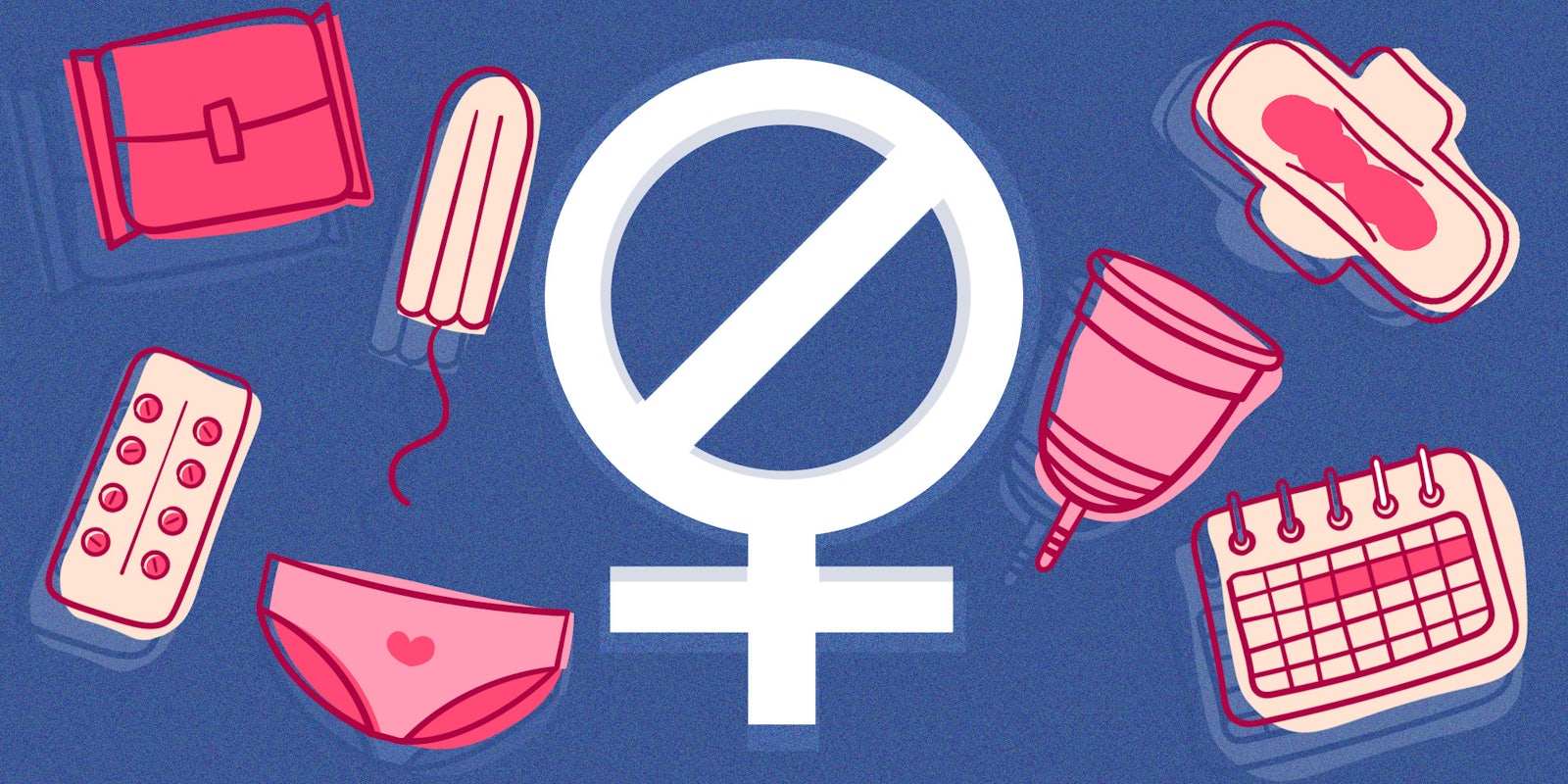A new report says that Facebook disproportionately rejects ads for products and services associated with women’s health products. Sixty companies that specialize in women’s health products say that the company has unfairly rejected their ads. Half have had their accounts suspended.
According to the report by the Center for Intimacy Justice in partnership with pelvic health startup Origin, Facebook penalizes ads for menstruation, pregnancy, menopause, fertility, vaginal health, and postpartum care. Ads that were reportedly rejected include products for endometriosis, strengthening the pelvic floor, bladder control, and sexual consent.
Most often, the Center for Intimacy Justice reports that Facebook based its rejection on violations of its policy prohibiting ads for adult products and services.
Facebook’s policy states that “ads promoting sexual and reproductive health products or services, like contraception and family planning must be targeted to people 18 years or older and must not focus on sexual pleasure.”
The report says Facebook applies this standard “unevenly.”
As proof, the report points to ads that Facebook has allowed, such as for condoms, erectile disfunction, and cosmetic and olfactory products for testicles. A condom ad promises “pleasure;” an ad for an erectile dysfunction product says, “Get hard or your money back.”
“Right now, it’s arbitrary where they’ll say a product is or isn’t allowed in a way that we think has really sexist undertones and a lack of understanding about health,” Jackie Rotman, founder of the Center for Intimacy Justice, told the New York Times.
Facebook concedes that it makes mistakes, but insists it doesn’t simply ban words like “vagina” as it attempts to enforce policies with its global audience in mind.
“We welcome ads for sexual wellness products but we prohibit nudity and have specific rules about how these products can be marketed on our platform,” a spokesperson for Meta, Facebook’s parent company, told the Times.
Nevertheless, the 60 companies surveyed—whose ownership includes 59 women and one nonbinary individual—told the Center for Intimacy Justice that they’ve had to use vague language and sacrifice clarity to get ads approved. Such efforts have mixed results, they say. They believe the decision often comes down to the opinion of whoever reviews the ad.
The digital marketing manager of Intimate Rose, a purveyor of vaginal dilators and pelvic-floor weights and wands, told the Times that they’re “normally always rejected”—even when they go out of their way to comply with Facebook’s rules. They reportedly said rejected ads include a fully clothed couple captioned “live, laugh, and love again with pelvic health products from Intimate Rose” and two in which women discuss how the weights have improved their incontinence issues.
The Center for Intimate Justice believes that Facebook’s policies are “discriminatory.” The report says that the overall effect suppresses sexual health information, maintains unfair market conditions for women and those of diverse genders, and creates roadblocks for fostering a culture of equity and wellbeing in intimate relations.
Rotman, director of the center, believes that the solution is far simpler than other problems Facebook has encountered.
“This is a fixable problem,” she told the Times. “It’s not as complicated as protecting democracy or elections.
“It’s about finding a way to make sure that women’s health ads aren’t being blocked. It’s simply a matter of Facebook deciding that this is something they’re going to fix.”


